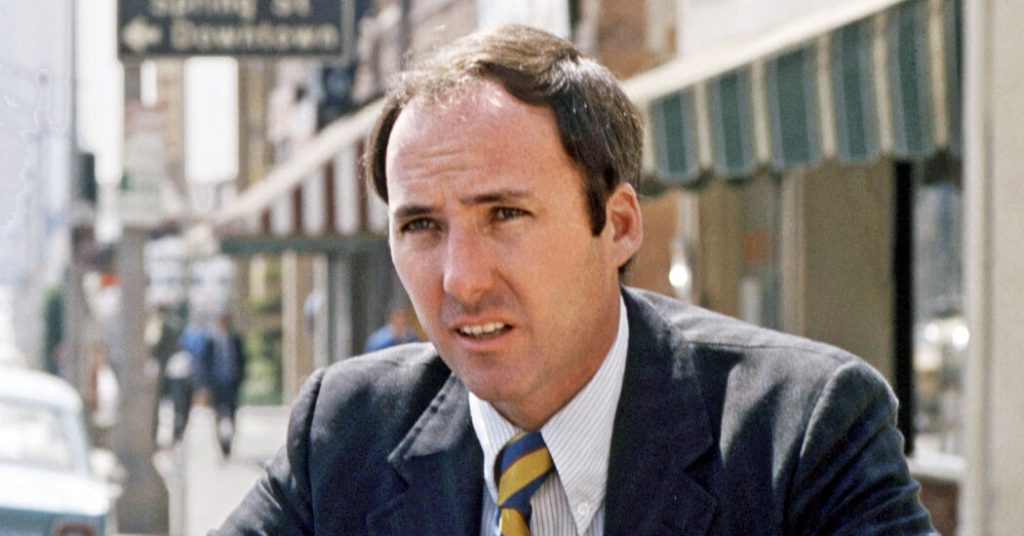Joseph Wambaugh: The Master of Police Dramas
Joseph Wambaugh, the celebrated author and master storyteller of police dramas, passed away on Friday at his home in Rancho Mirage, California. He was 88 years old and succumbed to esophageal cancer, according to Janene Gant, a long-time family friend. Wambaugh left an indelible mark on literature, film, and television with his gripping portrayals of law enforcement officers navigating the harsh realities of their jobs. His work not only captured the struggles of street cops and detectives but also exposed the unseen emotional toll the profession takes on those who serve. Through his writing, Wambaugh humanized the men and women in blue, revealing their flaws, fears, and resilience in a way that resonated deeply with audiences worldwide.
The Nuanced Portrayal of Cops
Wambaugh’s writing stood out for its raw honesty and unfiltered portrayal of police officers. Long before his career as a writer began in 1971, police dramas like the TV series Dragnet were sanitized, formulaic tales of clean-cut heroes doing good. Wambaugh shattered that mold by creating complex, multidimensional characters. His cops were profane, violent, and fallible—far from the idealized icons of earlier generations. In his novels, officers like Gibson Hand and Buckmore Phipps from The Glitter Dome or Sgt. Natalie Zimmerman and Sgt. A.M. Valnikov from The Black Marble were not just enforcers of the law but deeply human beings grappling with love, loss, and the moral ambiguities of their work.
The Hidden Costs of Policing
One of Wambaugh’s most significant contributions was his unflinching exploration of the psychological and emotional toll policing takes on officers. In his groundbreaking first work of nonfiction, The Onion Field, he chronicled the devastating aftermath of a tragic event: the killing of Officer Karl Hettinger’s partner by thugs. Hettinger’s struggle with impotence, nightmares, suicidal thoughts, and physical decline became a haunting example of the unseen scars left by the job. Wambaugh was blunt about the hidden costs of policing, from broken marriages and nervous breakdowns to suicides. His writing revealed the dark underbelly of a profession often romanticized in popular culture.
A Gritty Realism that Resonated
Wambaugh’s stories were not just about crime and punishment; they were about the people behind the badges. His characters were often flawed, sometimes cruel, but always relatable. In his writing, readers found an unparalleled intimacy with the officers, experiencing their gallows humor, their boredom, and their sudden brushes with danger. Whether it was the bigotry of a partner or the fatalism that came with the job, Wambaugh’s cops were real. His narratives captured the constant tension between the ideals of justice and the harsh realities of the streets. This gritty realism gave readers a window into the world of law enforcement that was both compelling and unsettling.
A Legacy of Truth and Authenticity
Joseph Wambaugh’s impact on the genre of police dramas cannot be overstated. He single-handedly changed the way people perceived law enforcement officers, stripping away the myths and presenting them as complex, vulnerable human beings. His writing inspired countless adaptations for film and television, cementing his influence on popular culture. Yet, more importantly, Wambaugh’s work gave voice to the silent struggles of officers, shedding light on the psychological burdens they carry long after their shifts end. His legacy lies not only in his body of work but in the way he humanized the police, reminding us that they are not just enforcers of the law but also individuals with their own fears, flaws, and hopes.
A Final Shift Out of Hollywood Station
As news of Wambaugh’s passing spreads, fans and admirers are left to reflect on his enduring legacy. From the streets of Los Angeles to the pages of his novels, Wambaugh’s work has left an indelible mark on the way we think about policing. His ability to capture the essence of the job—the camaraderie, the danger, the inevitable fatalism—has kept readers and audiences riveted for decades. While Wambaugh’s final shift has come to an end, his stories will continue to resonate, offering a poignant reminder of the human cost of justice and the enduring spirit of those who serve. A complete obituary celebrating his life and work will follow.


